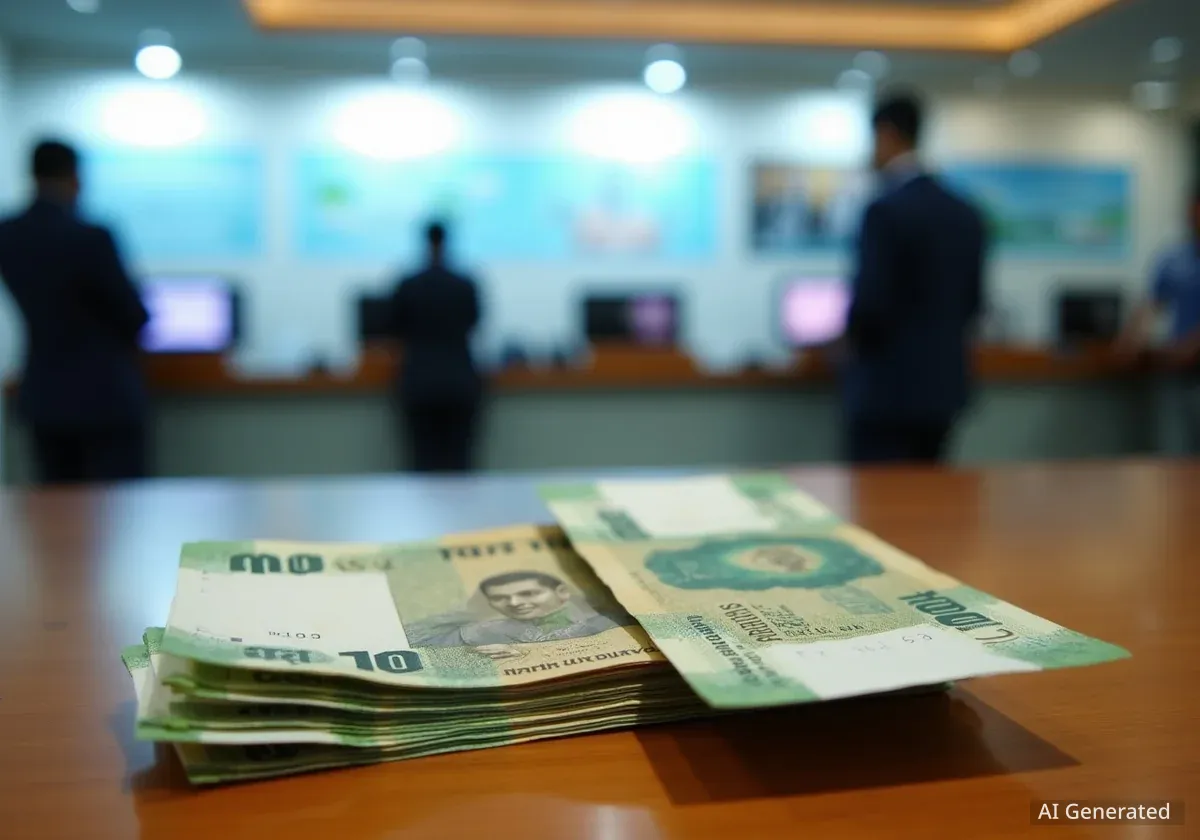Bangladesh Bank is developing a detailed repayment scheme for customers of five Islamic banks slated for a major merger. The plan prioritizes individual depositors and outlines a multi-stage process to manage the Tk1.52 lakh crore in total deposits held by the institutions, according to central bank officials.
The merger will create the country's largest bank by assets. The five banks involved are First Security Islami Bank, Global Islami Bank, Union Bank, Social Islami Bank, and EXIM Bank. The central bank's strategy aims to protect smaller account holders while restructuring the combined entity's finances.
Key Takeaways
- Bangladesh Bank is creating a repayment plan for depositors of five merging Islamic banks.
- Individual depositors are the top priority, with an initial insured payout of up to Tk2 lakh.
- Institutional depositors may receive shares in the new bank instead of cash.
- A Tk35,000 crore capital injection is planned from the government and other sources.
- The five banks will be delisted from the stock exchange, and compensation for shareholders is under consideration.
Scope of the Financial Restructuring
The five banks collectively hold deposits amounting to Tk1.52 lakh crore. Against this, their total outstanding loans exceed Tk2 lakh crore, based on data from Bangladesh Bank. A significant portion of the deposits, approximately Tk46,000 crore, belongs to individual account holders.
Once the merger is complete, the new financial institution will manage assets valued at around Tk2.20 lakh crore. To ensure its stability, a substantial capital base of Tk35,000 crore is planned.
Capital Injection Sources
The funding for the new bank's capital is structured to come from multiple sources. The government is expected to provide the largest share at Tk20,000 crore. The national deposit insurance fund will contribute Tk10,000 crore, and the remaining Tk5,000 crore is anticipated from multilateral lenders like the International Monetary Fund (IMF), World Bank, and the Asian Development Bank (ADB).
This capital infusion is critical for stabilizing the newly formed entity and ensuring it can meet its obligations from the outset. The banks involved in this consolidation are First Security Islami Bank, Global Islami Bank, Union Bank, Social Islami Bank, and EXIM Bank.
Depositor Repayment Framework
The central bank's proposed repayment scheme places a strong emphasis on protecting individual savers. Officials have confirmed that these depositors will receive priority treatment throughout the process.
Priority for Individual Account Holders
Under the plan, which is contingent on the final approval of a draft amendment to the Deposit Protection Act, individual depositors are guaranteed an insured payment of up to Tk2 lakh. This amount is scheduled to be disbursed within two months after the banks' operating licenses are officially revoked, as mandated by the Bank Resolution Ordinance 2025.
For balances exceeding the Tk2 lakh insurance limit, repayments will be made in gradual phases. While a specific timeline for these subsequent payments has not been established, the framework is designed to return funds over time.
Interim Returns and Account Consolidation
During the transitional merger period, depositors may receive a flat 4% return on their funds. However, all existing deposit schemes and their associated interest rates will be discontinued. Furthermore, if a customer holds accounts in more than one of the five merging banks, all their deposits will be consolidated and treated as a single account for insurance purposes, with the Tk2 lakh limit applied to the total amount.
In contrast, borrowers will see no immediate changes. They are required to continue making their loan payments on schedule, and standard penalties for default will remain in effect.
Institutional Depositors
The approach for institutional depositors differs significantly. Instead of cash repayments, these larger entities may be offered shares in the newly created bank. This strategy aims to preserve the new bank's liquidity while giving institutional clients a stake in its future success.
Fate of Shareholders and Bank Management
The merger will have profound consequences for the existing shareholders of the five banks, all of which are publicly traded on the Dhaka Stock Exchange (DSE).
Delisting and Shareholder Compensation
As part of the merger process, all five banks will be delisted from the stock exchange. According to the Bank Company Act, general shareholders are not automatically entitled to compensation during a liquidation or merger. However, a senior executive at Bangladesh Bank stated that the central bank is exploring potential compensation options, following advice from the finance ministry.
"We are considering ways to compensate [general shareholders] following advice from the finance ministry," a senior central bank executive told The Business Standard.
Discussions are planned between Bangladesh Bank and the Bangladesh Securities and Exchange Commission (BSEC) to manage the delisting process and finalize any potential compensation structure. Public shareholders have already faced substantial losses, with share prices for all five banks dropping below Tk5, well under their face value of Tk10.
Transition to New Leadership
To oversee the transition, Bangladesh Bank will replace the current managing directors of the five banks with appointed administrators. These administrators will manage operations under the Prompt Corrective Action Framework, ensuring stability during the interim period.
The existing boards of directors will become inactive. The administrators will have the authority to assess the financial health of the banks, replace key executives if necessary, and ensure prudent management. For these Islamic banks, the appointed administrators must have expertise in Shariah-compliant finance to maintain operational integrity.





